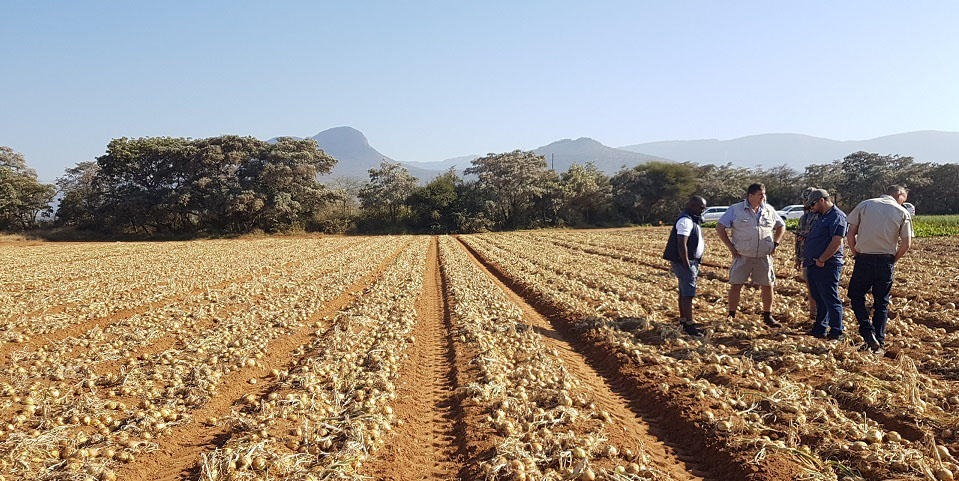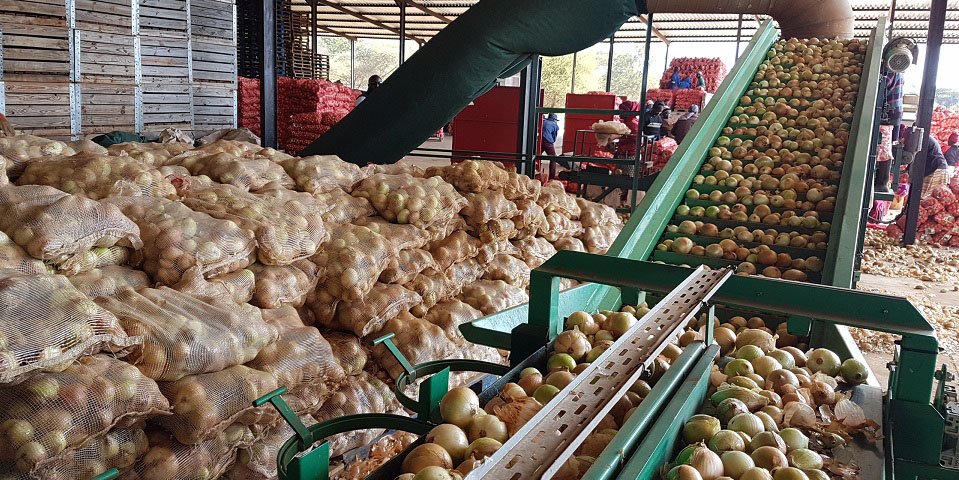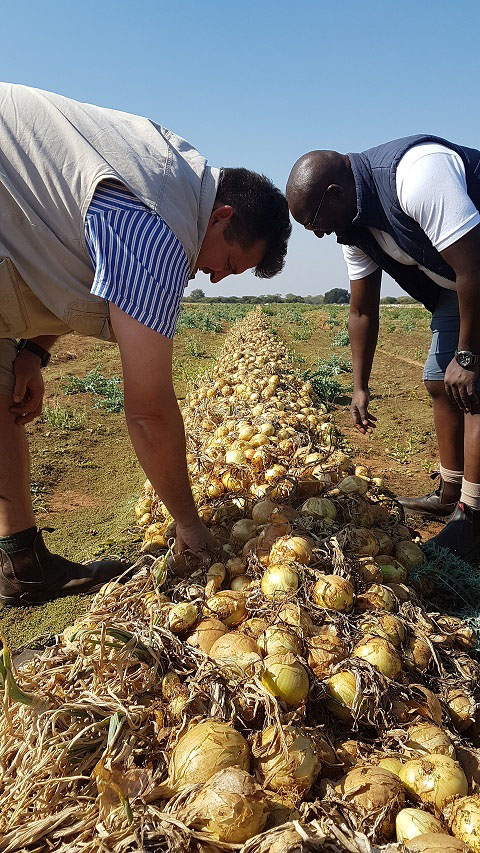
Information

Onions are a staple food, globally and constitute around 14% of fresh produce crops traded in South Africa. Onion is it the third-largest crop, preceded by potatoes with 34% and tomatoes with 16% of the total value of fresh produce traded. The South African onion market is not the most massive looking at hectares. But thanks to breeding companies like Enza Zaden, it is one of the most advanced markets when it comes to genetic quality of hybrids used, specifically when it comes down to the Short Day onion type.
Since the introduction of the first hybrid onion varieties during the early 1950s, vast improvements have been made. The first hybrids, like Granex 33, led to improvements in quality and yield. In the early 1990s varieties such as Primavera from Seminis and Shahar and Hanna from Hazera became household names to commercial growers. Varieties like Savanna Sweet and Gold Rush made their mark soon after that. Open-pollinated varieties, like Capricio and hybrids like Dessex, played an essential role in the South African market during this same time. These varieties were mainly used for production from sets in key production areas such as Brits.
It was about 25-30 years ago when the first hybrids made a significant change. The early hybrids appeared during onion production in the ’90s and early 2000s. They realized yields from 30-50 tons per hectare to record yields of above 80 tons per hectare. The onion market was growing, consumers became more knowledgeable, and disease pressure rose. It led to evolving requirements for onion varieties. Although the market was not as critical about onion quality as today, new hybrids did stand out from traditional types. At the time, the main weakness of the early Grano hybrids was their shape and firmness. These varieties were also very daylight sensitive and limited Short Day onion production to a very narrow planting slot.

During the mid-1990s trials started in South Africa with an onion range that would change the face of onion production forever. “Cavalier from the Yates breeding program, marketed as STAR5516 through Starke Ayres, was one of the first new-generation hybrids. It still is a popular variety in many areas of South Africa,” says Lewis Lydon, Crop Breeding Manager from Enza Zaden in Narromine, Australia. “Through Cavalier, globe shape, firmness and above all, improved adaptability were introduced to the South African market. It was the foundation of the new Short Day genetics we see today.”
“Through Cavalier, globe shape, firmness and above all, improved adaptability were introduced to the South African market. It was the foundation of the new Short Day genetics we see today.”
The acquisition of the Yates breeding program by Enza Zaden in 2003 combined the excellent genetics of the breeding program with larger, more advanced teams of research and product development, seed production, planning and portfolio management. It also developed a range that allows an even longer planting time. Today, Enza Zaden is the leading Short Day onion breeding company in the world.
Adaptability, without a doubt, was the most significant improvement. The development of Enza Zaden’s Late-, Mid- and Early Short Day varieties made it possible for growers in the northern region of South Africa to sow from as early as January through to May. Copperhead is one of Enza Zaden’s first double haploid hybrids with the focus on firmness for machine harvest and uniformity in the Early Short Day type segment. Python is a transitional hybrid from Late Short Day to Early Intermediate and is perfect for early sowings in the northern onion growing region of the country.

A distinct change has been in shape; a typical Grano type has a ‘Spinning-top’ shape, with a flattened top to sharply tapered root base. Today, a globe shape is required, offering a higher yield that allows uniform grading and easier packing with fewer rejects throughout the supply chain.
Bulb firmness significantly improved. The traditional Grano type had a much softer bulb which was prone to rotting and physical damage through handling. Most Enza Zaden Short Day onions are ‘rock hard’, suffering less breakdown. It contributes significantly to storability. Most onions could previously store for four to six weeks at most compared to the current range of hybrids available, which can be stored two to three times longer. It gives growers superior flexibility in their marketing options and better feedback from their customers. It highlights how a seed company with good genetics can add value to the entire crop chain, from grower to market agent or retailer, to the ultimate judge, the consumer.

In the Northern Cape, onion storage is standard, but more recently, even Bushveld onion growers are considering bulb storage to benefit from the premium quality some of the new hybrids have to offer. The more recent hybrids feature more attractively coloured, copper-brown, better retained, and more disease tolerant skins. An increasingly desired trait is better skin retention, where layers of cured skin don’t flake off so easily. The more skins an onion has, the better the tasty package within is protected. Varieties like Copperhead and Python are some of the Short Day onions which exhibit such characteristics allowing growers in the north to grow ‘onions from the bushveld with Western Cape qualities’.
“Even Bushveld onion growers are considering bulb storage to benefit from the premium quality some of the new hybrids offer.”
Change is continuous as our markets evolve. Mechanical harvesting is not a new concept to South African onion growers. For this, not just any onion will do. Onions need to withstand significantly more handling without compromising quality or pack-out yield, mainly as customers such as supermarket chains impose increasingly strict quality criteria on growers. For this, new varieties with more skins and even harder bulbs are in development.
“We are advancing with our pink root tolerant range,” says Johan Bestbier, Onion Portfolio Manager at Enza Zaden South Africa, emphasizing that disease tolerance is and always has been front in mind in their breeding objectives. “We currently have several F1 hybrid varieties with advanced levels of pink root tolerance, like Rebecca and Samurai.”
Enza Zaden is confident it will continue to introduce varieties that not only add value to the entire supply chain but continue to raise the benchmark for many generations to come. Why? Because of the unique combination of being backed by world-class technology, many years of experience and a strong footprint in all leading short-day onion markets.
Contact the South African sales team! You will find their contact details via the block below this article.